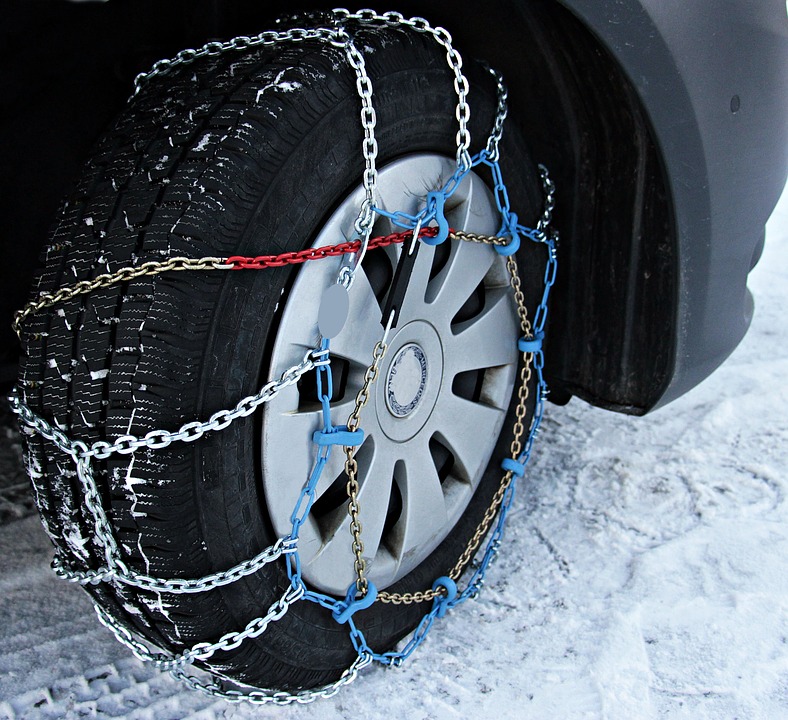Overcome The Challenges Of Outdoor Family Fun In Winter
Did you know that on average Americans put on extra 0.6kg over the Christmas period? Unfortunately, for most of us, the winter gain doesn’t stop at the end of the festive season. It’s not uncommon to pack pounds during the totality of the winter months. For adults, you can expect a gain of about 4.5 pounds – women and men. Children can also put on more weight; however, the gain is unlikely to reach such extremes. Regardless of your fitness objectives, this seasonal weight gain could put your health at risk. Indeed, you need to think of your body as a finely tuned machine. At its heart, your immune system is responsible for keeping you healthy and fighting off infections and germs. Your immune system reacts to your lifestyle choices and nutrition.
For instance, take a typical summer day. You’re waking up with the sun. After a refreshing and light breakfast, you’re packing your beach bag for a day out with the family. You spend the day swimming, playing ball games and jumping in the waves with the kids, only stopping for a quick sandwich at lunchtime and ice cream in the afternoon. By the end of the afternoon, you grab your bag and head back home for a quick shower that should clear the sand and the salt from your skin and hair. When you’re done, it’s almost time for dinner, and you set the bbq ready in the garden while the kids play in the pool. Your immune system is sky high. It loves the activity, the direct sun exposure, and fresh meals.
Now, picture a typical winter weekend with the kids. The sky is gray and dark when you wake up at the sound of the alarm clock. You stumble downstairs, still feeling tired. You need a strong cup of coffee… and maybe a sweet blueberry muffin would help you to feel more positive about the day! You look through the window; it looks like rain is coming. You decide to turn the TV on and switch through the channels until you find a replay of an old show you like. You’re soon joined by the kids, who’ve picked a pack of biscuits from the kitchen and suggest another show. A little later, a bag of crisps finds its way to the sofa, as well as a can of pop. You prepare a quick lunch that you eat in front of the TV and retire for the afternoon on your laptop, where you can check some work projects for the week. Finally, it’s time for dinner, and prepare everybody’s favorite comfort food, a bowl of spaghetti bolognese covered in gooey cheese. For dessert, there’s a blueberry muffin for everyone. The lack of movement, sun exposure, and fresh vitamins affect your immune system. You’re more likely to react to germs because your immune system is too weak to fight them off. Additionally, the weight you put on in winter spread throughout your body, weakening your heart and increasing the risk of diabetes for your family. In other words, it’s time to turn your cozy home winter into an active outdoor time of fun!
#1. Self-imposed sedentary life
The significant difference between summer and winter is the weather. The warm temperatures encourage you to spend time outside. It also affects your appetite, so that you naturally consume less food in summer. But winter time is the complete opposite.
For a start, the idea of outdoor activities can seem almost like modern day torture for people who don’t tolerate the cold well. Indeed, the most common complaint about winter refers to the freezing temperatures. Leading an active outdoor life in winter is the last thing you want to do. However, it should also be your first line of action against the cold. Indeed, while it might sound strange at first, your body can adjust to the weather if you’ve been confronted with the same temperatures for a period of 10 days or more. Ultimately, that’s the reason why you don’t feel as cold in March as you do in November, even though the two months tend to experience similar temperatures. Admittedly, depending on where your ancestors came from, you might be more or less genetically favored regarding your acclimatization to the weather. But the bottom line is that your body can adjust over time, meaning that you’ll feel warmer and warmer the more often you go outside. Staying indoors during the winter season is not only unnatural – your ancestors would have remained active to survive – but it is also counterproductive. Indeed, the more you stay inactive indoors, the lower your metabolism gets, and the colder you feel.
#2. Break the sedentary bubble
How do you convince your kids and yourself to try the outdoors? Admittedly, regardless of the season, if you have sedentary preferences and hobbies – such as watching TV or playing video games – you’ll need to take small steps to encourage everyone to go out for a little while. If you have a dog, you already have the perfect excuse to take a stroll with your family. Convincing the kids to come with you could be tricky, especially when the sky is gray and the road icy, but you could offer to grab a hot chocolate in town on the way back to get over their hesitation. Or maybe you could try something new, such as booking a local igloo making class if you live in a snowy area! You might even stumble across an igloo building contest if you’re in luck – Narwal Northern Adventures is a popular touring agency that runs igloo contests through Northern America, for instance.
#3. How about making the outdoors appealing at home?
Did you know that your backyard could play a significant role in your winter activities? Indeed, most homeowners check the temperatures by looking through the window. If everything looks gray and bleak, they’re more likely to be tempted by an afternoon in front of the TV. But what if the garden is vibrant with colors and life? This might be the detail that can transform your day and your winter health! But, there’s no way around it. A winter garden requires time and efforts. You need to select plants that are suitable for cold temperatures and that can survive severe frosts. Evergreens are naturally a favorite. But, you can also consider winter flowers – daphnes and mahonias are fantastic additions to any garden. While it might be too late for your winter garden this year, make a note to start planting in autumn when the soil is still warm.
#4. Embracing the ultimate winter fun
Winter means snow, and snow means ski! If you’ve never booked a ski vacation with your family, now’s the best time to prepare a dream holiday in Winterland! More ski resorts will have snow until late March or early April, but the best period of the year is January to February. Taking your family on a ski holiday is the best way to make the outdoors fun again. Make sure, however, to pick a child-friendly resort with plenty of accessible slopes for beginners and on-site instructors, including options for ski school to help your kids build their skills. Additionally, you want to get a range of activities aside from skiing, as foggy or icy weather will make it difficult to enjoy your time on the slope.
#5. Can you drive safely in winter?
A common issue that affects many drivers in winter is road anxiety. Indeed, if you are not confident in your car performance on an icy or snowy road, you might be tempted to stay safely indoors. You can, however, tackle your fear with winter driving lessons and appropriate weather tires. Additionally, your family would be safer in a vehicle that can handle uneven surfaces, such as an SUV – you can check this site to learn more about SUVs options and characteristics and why they’re the ideal family car in winter. Feeling more confident about your ability and your vehicle will encourage more outdoor experiences. One word of warning, though, you should be careful to respect snow and blizzard alerts to avoid getting stuck. Never take the road without checking your vehicle.
#6. Wait a minute; going outside will get me ill
You need to be ready to reassure your family too. Most people stay indoors because they believe that going out would make them sick in winter. In reality, this is incorrect. Cold temperatures are not related to viruses.
On the contrary, you get sick because your body isn’t prepared to fight off an infection. Encouraging your family to maintain their level of activity is the safest way to keep their immune systems healthy. Additionally, it’s important to understand that germs develop indoors in winter; meaning that staying at home maximizes your exposure to viruses.
#7. Does going outside really matter in winter?
Lastly, seasonal affective disorder cases increase in winter, as a result of reduced sunlight exposure. Spending as little as 20 minutes outside can dramatically help your family and protect their mental health.
The human body is not designed to hibernate through winter. But, it can be difficult to get excited about going out when the weather is cold! However, you can be the voice of reason for your family this winter: From explaining that the body acclimatizes quickly to planning your first ski trip together, there’s a lot you can do to stay healthy and together during the cold months.



